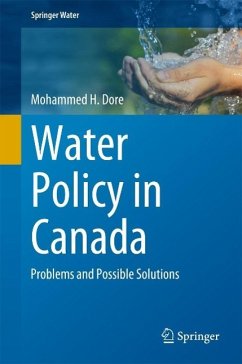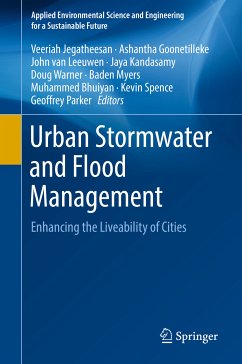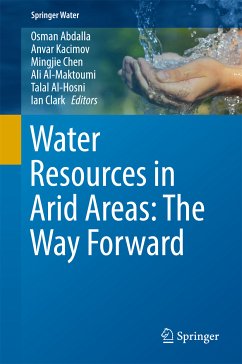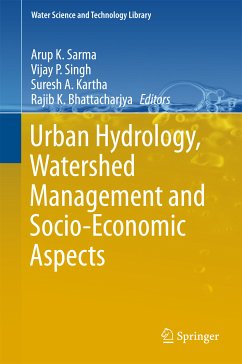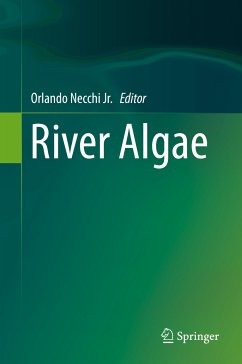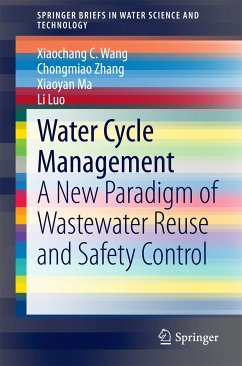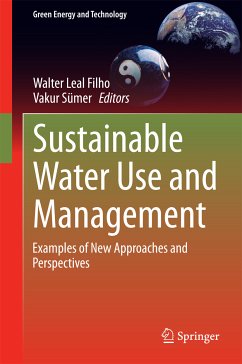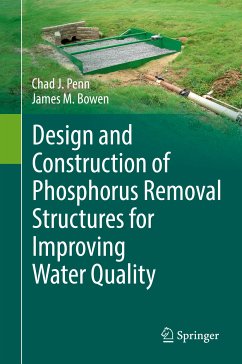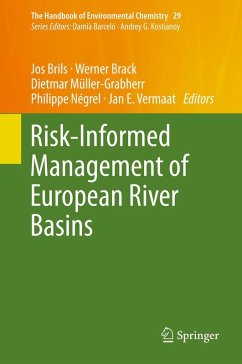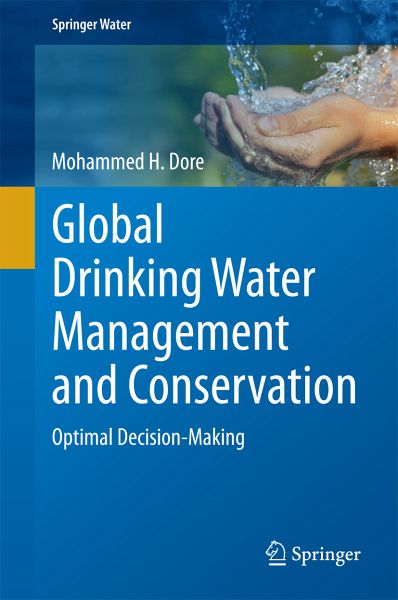
Global Drinking Water Management and Conservation (eBook, PDF)
Optimal Decision-Making
Versandkostenfrei!
Sofort per Download lieferbar
72,95 €
inkl. MwSt.
Weitere Ausgaben:

PAYBACK Punkte
36 °P sammeln!
This book discusses different drinking water treatment technologies and what contaminants each treatment method can remove, and at what costs. The production of drinking water requires adequate management. This book attempts to fill the existing knowlegde gap about (a) water treatment technologies and their costs, (b) risk assessment methods, (c) adverse health effects of chemical contaminants, (d) management protocols, and varying regulatory practices in different jurisdictions, and what successes are possible even with small financial outlays. Addressing water consulting engineers, politicia...
This book discusses different drinking water treatment technologies and what contaminants each treatment method can remove, and at what costs. The production of drinking water requires adequate management. This book attempts to fill the existing knowlegde gap about (a) water treatment technologies and their costs, (b) risk assessment methods, (c) adverse health effects of chemical contaminants, (d) management protocols, and varying regulatory practices in different jurisdictions, and what successes are possible even with small financial outlays. Addressing water consulting engineers, politicians, water managers, ecosystem and environmental activists, and water policy researchers, and being clearly structured through a division in four parts, this book considers theoretical aspects, technologies, chemical contaminants and their possible elimination, and illustrates all aspects in selected international case studies.
Source-water protection, water treatment technology, and the water distribution network are critically reviewed and discussed. The book suggests improvements for the management of risks and financial viability of the treatment infrastructure, as well as ways toward an optimal management of the distribution network through the risk-based management of all infrastructure assets.
Source-water protection, water treatment technology, and the water distribution network are critically reviewed and discussed. The book suggests improvements for the management of risks and financial viability of the treatment infrastructure, as well as ways toward an optimal management of the distribution network through the risk-based management of all infrastructure assets.
Dieser Download kann aus rechtlichen Gründen nur mit Rechnungsadresse in A, B, BG, CY, CZ, D, DK, EW, E, FIN, F, GR, HR, H, IRL, I, LT, L, LR, M, NL, PL, P, R, S, SLO, SK ausgeliefert werden.




